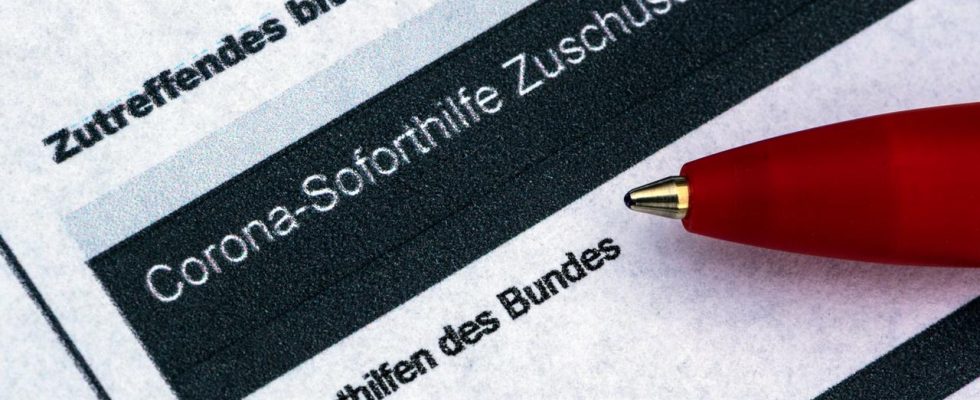background
Tax discounts, financial aid, government entry: governments often show their generous side, especially in times of crisis. But who keeps track of subsidies?
The restaurant association DEHOGA is calling for subsidies for restaurateurs, which were introduced to support the industry during the pandemic, to be made permanent. The interest group is collecting clicks for an online petition “so that we preserve what makes our country worth living in and lovable.”
Since summer 2020, restaurants have only had to pay seven percent VAT instead of the regular 19 percent. Restaurateurs could and can pocket an additional difference of twelve percent. Of course, sales plummeted during the pandemic, while costs could not be reduced to the same extent. Restaurateurs made heavy losses.
According to data from the Federal Statistical Office, sales in the catering industry have been increasing for a year. The pre-Corona level has not yet been reached. According to sales tax statistics, at least 30,000 restaurants did not survive the pandemic. If you take this and the high inflation into account, you can see that on average, the remaining restaurateurs in Germany make more sales, adjusted for prices, than in 2019.
Contradictory VAT
Last year, the federal and state governments waived three billion euros in favor of hotels and restaurants. The Corona subsidy through the low VAT has already been extended twice and is now set to expire at the end of this year. “Tax relief promotes deadweight effects, has a tendency to become entrenched and runs the risk of soon no longer being perceived as a subsidy,” warns the Federal Ministry of Finance in its subsidy report.
The Federal Audit Office does not believe in the numerous exceptions to the normal VAT rate. According to the supervisory authority, this leads to demarcation problems and contradictions in the system. Hosts who serve Argentine steak in restaurants pay seven percent; those who serve snails, 19 percent. For the following night in the guest room, the “Golden Anchor” pays seven percent VAT, but for the previously visited love hotel, the manager of the “Red Lantern” has to transfer 19 percent to the tax office.
And anyone who offers their customers coffee enjoys more sales with latte macchiato (seven percent) than with milk coffee (19 percent): it’s the milk that counts – because with a share of over 75 percent, according to tax logic, it is a mixed milk drink .
“Uncontrolled and far too often ineffective”
Tax relief is only part of government subsidies. Individual risky business transactions by companies are often secured by government guarantees. According to the federal government’s current financial report, guarantees worth 160 billion euros are available. The vast majority of transactions go well: only two billion had to be paid out. Companies owned by the state are often subsidized with direct payments. The federal government pumped more than ten billion into its companies in 2021, eight of which went into Deutsche Bahn. Private companies also receive government money directly.
The federal government’s subsidy report shows that a total of around 80 billion euros in subsidies were paid by the federal, state and special public funds in 2022. The federal government has been particularly generous in its spending: its subsidies have doubled to 47 billion euros since 2019. A large part goes towards climate protection; However, the Expert Council for Climate Issues complains that the numerous environmental programs are inadequate, vague and contradictory.
The Ministry of Finance reports “special justification” and “regular success monitoring”. New subsidies should be financed “through savings elsewhere.” “Nothing has happened, the subsidies are uncontrolled and far too often ineffective,” writes the Taxpayers’ Association. For example, it has long been clear that the future of cars lies in electric drives. Nevertheless, the Ministry of Transport is subsidizing hydrogen filling stations for passenger cars with hundreds of millions.
Profit from selling Lufthansa shares
The state can also do small-small: Although the federal states are responsible for art and culture, the federal government is paying five million to organizers of music festivals this year, criticizes the taxpayers’ association. In Berlin, a private company applied for money at the beginning of the year to counter the “increasing deprivation of civil rights” with an artists’ newspaper. Within one day, the office of the Senator for Culture approved 40,000 euros. This was used to pay the company’s ongoing costs and the majority of the newspaper. It was not noticeable that there was neither proper accounting nor the claimed non-profit status.
Subsidies also need to be calculated – sometimes they work well and sometimes they don’t. The 15.6 percent that the federal government has held in Commerzbank since the banking crisis was paid for at around 26 euros per share. This course has been out of sight for years; A Commerzbank share currently costs around ten euros. When the state rescued Lufthansa during the pandemic, it was cleverer: shares were bought cheaply and have long since been sold again – with a profit of 760 million euros.

